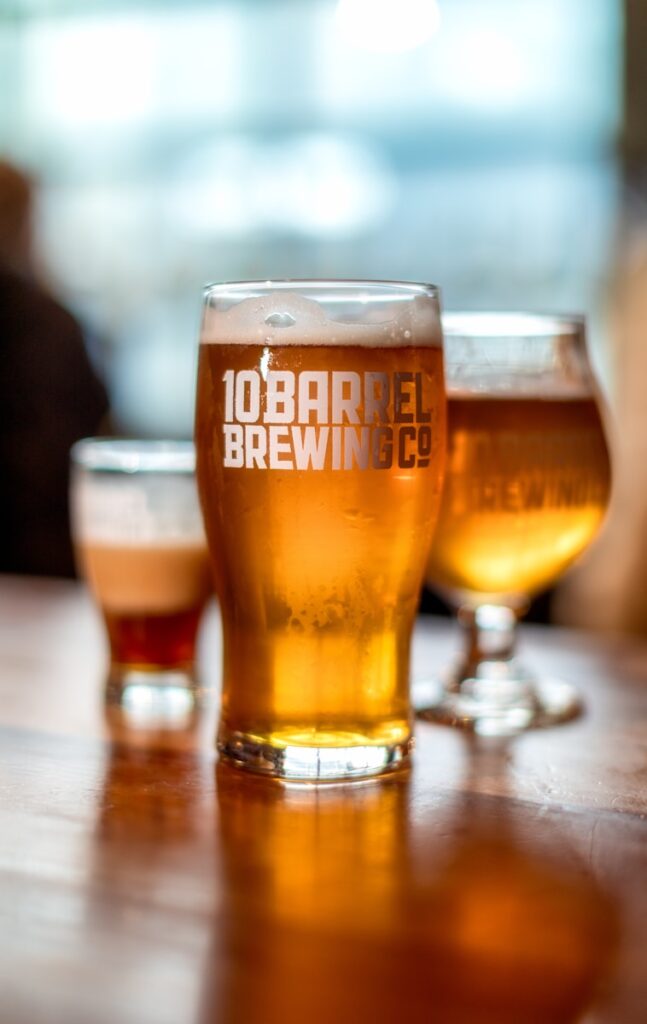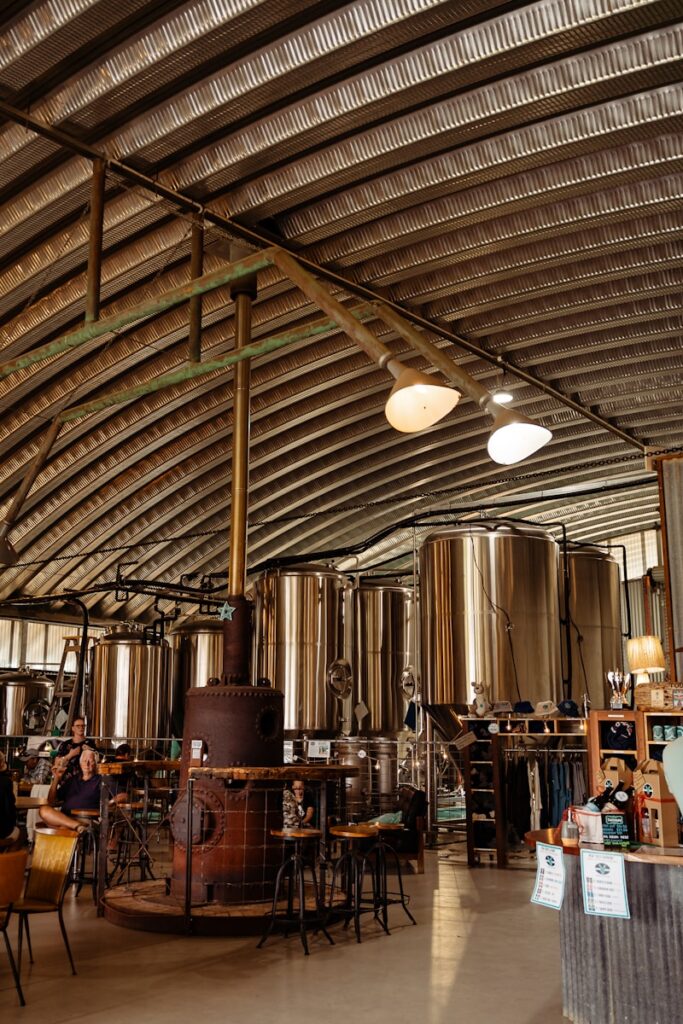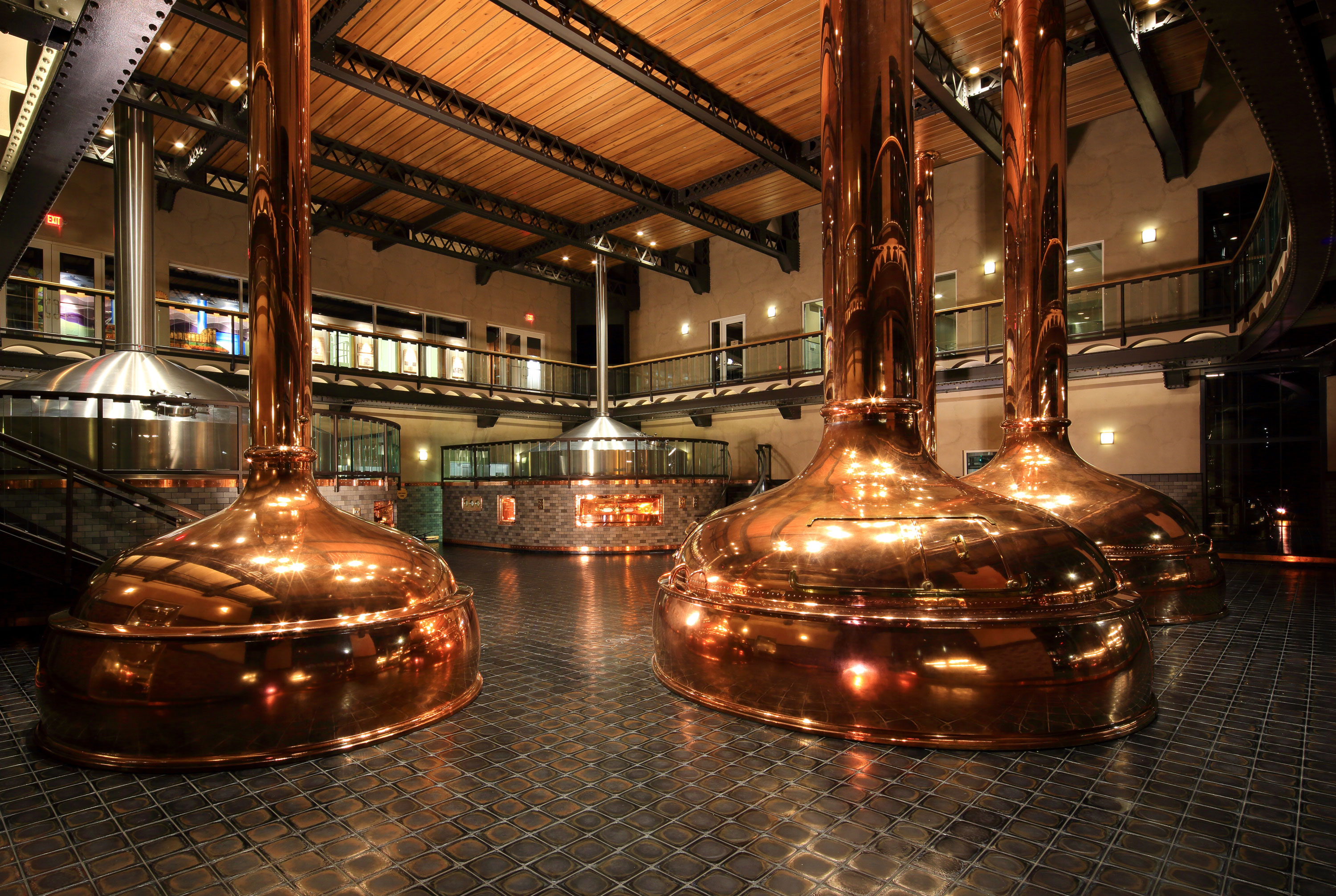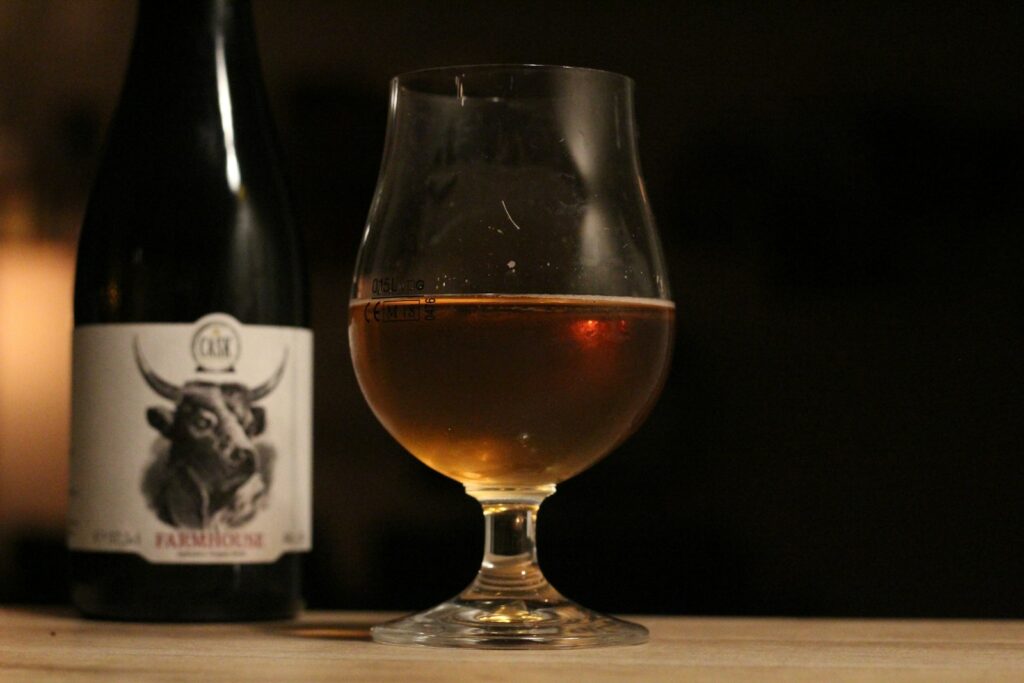
The brewing industry is undergoing a seismic shift as giants like AB InBev and Molson Coors redefine their strategies amid declining beer sales and evolving consumer tastes. AB InBev’s push into ready-to-drink (RTD) products, driven by double-digit growth in canned cocktails, stands in stark contrast to Molson Coors’ closure of the 150-year-old Leinenkugel’s brewery. These moves—one toward diversification, the other toward consolidation—highlight the stark choices companies face in a market where traditional beer dominance is waning.

RTD Revolution: AB InBev’s Cocktail Strategy to Offset Beer Declines
AB InBev’s focus on ready-to-drink products reflects a view that this category is increasingly profitable. CEO Michel Doukeris highlighted on an earnings call that the “double-digit volume growth of canned cocktails like Cutwater and Nütrl” had helped offset declines in beer sales, illustrating the importance of diversification.
Addressing potential concerns about RTDs cannibalizing beer sales, Mr. Doukeris referenced Circana data during a recent earnings call. This data suggested that 75% of Cutwater and Nütrl sales were occurring alongside spirits and wine purchases, rather than displacing beer sales, indicating market expansion rather than substitution for these products.

Legacy Lost? Molson Coors’ Closure of the Leinenkugel Brewery
Meanwhile, another major player in the brewing industry, Molson Coors, has also undertaken significant structural changes, including the closure of a historic brewery. The company is closing the 150-year-old Leinenkugel’s brewery located in Chippewa Falls, Wisconsin.
Molson Coors had announced in November its intention to shut down the facility in January and relocate production to its Milwaukee plant. The closure directly impacts 56 workers who completed their final shifts just recently.
The closure decision has reportedly been met with disappointment from the local community and even the family who founded the brewery. Brothers Jake and Dick Leinenkugel, representing the sixth generation of the family that established the brewery in 1867, have expressed a desire to buy the facility back and keep it operational.
The brothers have indicated that their proposals to repurchase the brewery have so far been ignored by Molson Coors. Dick Leinenkugel stated, “We would like to restore brewing operations at the Chippewa Falls site,” expressing hope for reconsideration from the company.
Product on Amazon: Molson Coors Light Frosty Bottle Metal Sign – Fun Coors Light Sign for Man Cave, Bar or Game Room
Brand: Open Road Brands
Binding: Kitchen Product Group: Lawn & Patio
Price: 16.99 USD
Color: Silver
Material: Metal
Theme: Food & Drink
Mounting Type: Wall Mount
Features:
1. Molson Coors Beverage Company Official product: Bring the ultimate refreshment into your home with this exciting wall decor! This unique die-cut sign is shaped like a chilled glass beer bottle, making it a standout piece for any space.
2. Material: This eye-catching sign is made of lightweight, sturdy, and weather-resistant tin. Made in USA.
3. Places to Use: Pay tribute to your favorite brew by displaying this wall decor in your man cave, bar, or game room.
4. Size: 3.81″ W X 14.35″ H X 0.125″ D
Top Review from US: “Great quality”
Shopping on Amazon >>

Family vs. Corporation: The Battle to Save Leinenkugel’s
A formal request from the brothers to begin negotiations was reportedly submitted earlier this month but was denied on January 6. They reached out again two days later, according to reports, emphasizing their goal of preserving the brewery’s legacy, but as of a recent report, there had been no response from Molson Coors.
Molson Coors has stated its intention to keep certain parts of the site open. The Leinie Lodge visitor center, gift shop, and a small pilot brewery are expected to remain operational, while the fate of the larger production facility remains unclear.
Dick Leinenkugel has indicated that if the family were successful in repurchasing the brewery, it would operate as a separate company. This new entity could potentially introduce a new brand for beer lovers, which, as Dick Leinenkugel noted, “That may or may not be brewed under the Leinenkugel’s name.”

As the brewery prepared for its final day, the family maintained a sense of optimism about the possibility of a future for the site under their ownership. Dick Leinenkugel emphasized the deep legacy the brewery holds for the Chippewa Valley community.
Molson Coors, the second-largest brewing company in the U.S., cited shifting its beer manufacturing to its Milwaukee plant as the primary reason for the decision. The company, which also produces well-known brands like Coors Light, Miller Lite, and Carling, described the closure as a difficult but necessary choice.
The closure of the 150-year-old brewery comes amidst reports of a sharp slump in overall beer sales impacting the company. Molson Coors CEO Gavin Hattersley had previously indicated that cost-cutting efforts would be necessary to navigate the challenging market conditions.
Product on Amazon: Vintage Beer Breweries are Calling and I Must Go Craft Beer T-Shirt
Brand: Vintage Beer Breweries are Calling
Binding: Apparel Product Group: Apparel
Price: 19.99 USD
Features:
1. Vintage Beer Breweries are Calling and I Must Go Craft Beer
2. Beer Brewery is Calling and I Must Go
3. Lightweight, Classic fit, Double-needle sleeve and bottom hem
Shopping on Amazon >>

The company’s financial results reflected these difficulties, with Molson Coors reporting a 7.3 percent decline in sales during the second quarter of the previous year. The company had also implemented price increases earlier in 2024, which can sometimes impact consumer demand.
Brian Erhardt, Molson Coors’ chief supply chain officer, provided context for the decision to Food Dive. He stated, “‘While never easy, these choices are made with much thought and consideration to position Molson Coors for continued success in Wisconsin and beyond.’
Mr. Erhardt further explained the strategic rationale, stating, “‘Following the end of a large contract brewing agreement and amid an ongoing canning line investment project at our Milwaukee brewery, we’ve made the decision to close two of our smaller brewing operations in Wisconsin and centralize statewide production at our main site in Milwaukee.’” The Chippewa Falls facility appears to be one of these smaller operations being consolidated.

These challenges faced by major brewers like AB InBev and Molson Coors are not isolated incidents. The broader food and beverage industry has seen companies reconfiguring production strategies in response to a tenuous economic climate, marked by years of ongoing inflation and changing consumer behavior.
Recent examples from other sectors underscore this trend. In the last month alone, cereal giant WK Kellogg Co and beverage behemoth Keurig Dr Pepper have both announced the closures of production facilities. These actions have impacted hundreds of jobs across the respective companies, highlighting the widespread nature of the pressures.
More broadly, alcohol brands across categories have reportedly suffered as Americans have cut back on their drinking habits following the period of pandemic lockdowns. This shift in behavior has added to the demand-side challenges facing producers.
The impact of reduced alcohol consumption is also visible in the wine industry. Vintage Wine Estates, identified as the 15th largest producer in the U.S., filed for bankruptcy in July, explicitly citing Americans drinking less as a contributing factor. Weeks later, one of the country’s oldest wineries, Meier’s Winery, an affiliate of Vintage, also filed for bankruptcy, citing similar market upheavals.

As AB InBev and Molson Coors chart contrasting paths—one embracing RTD innovation, the other navigating historic closures—the brewing industry’s future hinges on adaptability. The survival of legacy brands and facilities now depends on balancing tradition with agility, whether through diversifying into RTDs or preserving heritage through community-led ownership. In an era of shifting consumer habits, the ability to blend innovation with respect for brewing legacy will define the industry’s next chapter.
Related posts:
AB InBev to shutter Anheuser-Busch distribution facility
Anheuser-Busch forced to close iconic St. Louis brewery after Bud Light controversy?
Canada Halts Musk’s $43M Tesla EV Rebate Claim After Rapid-Fire Sales, Bans Future Subsidies



